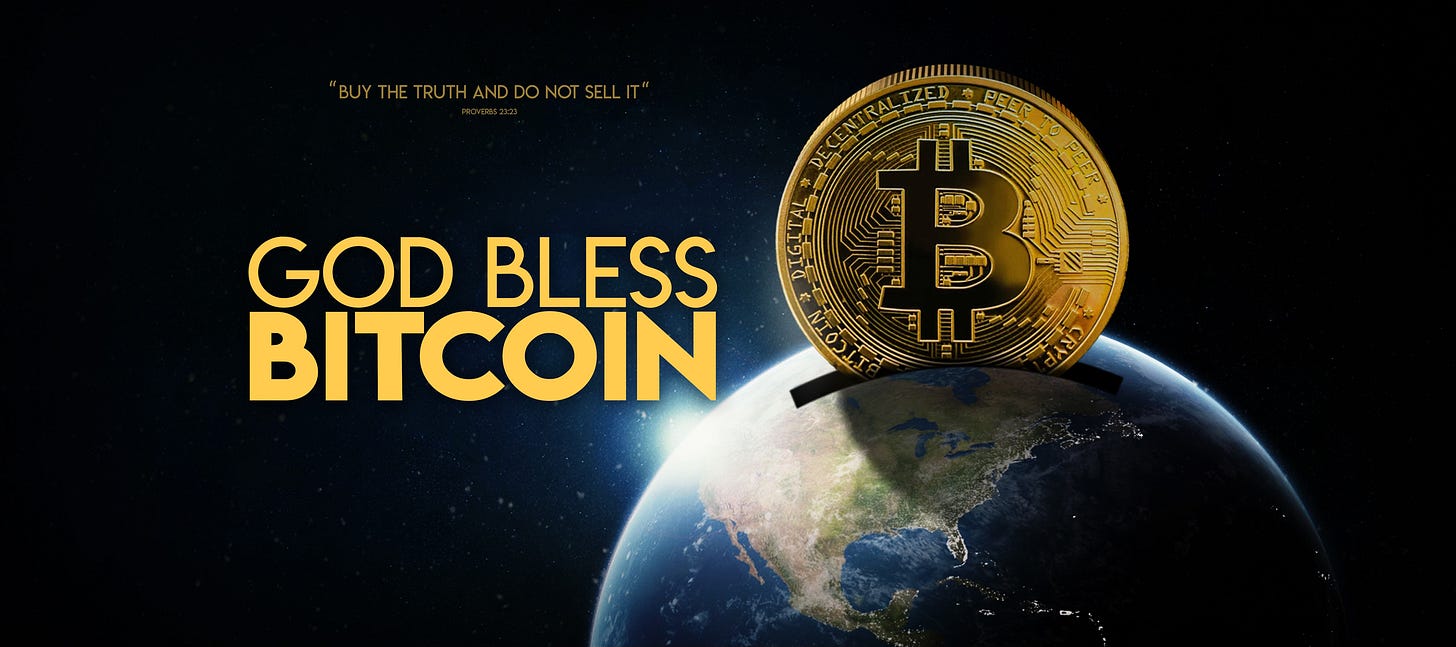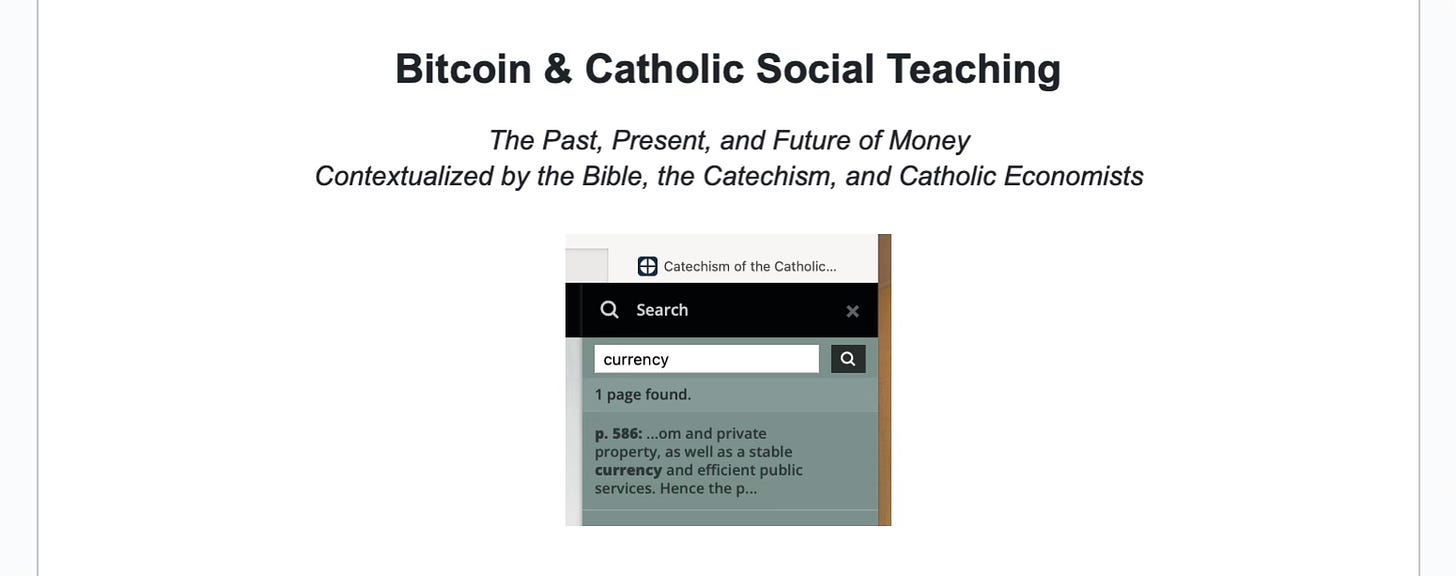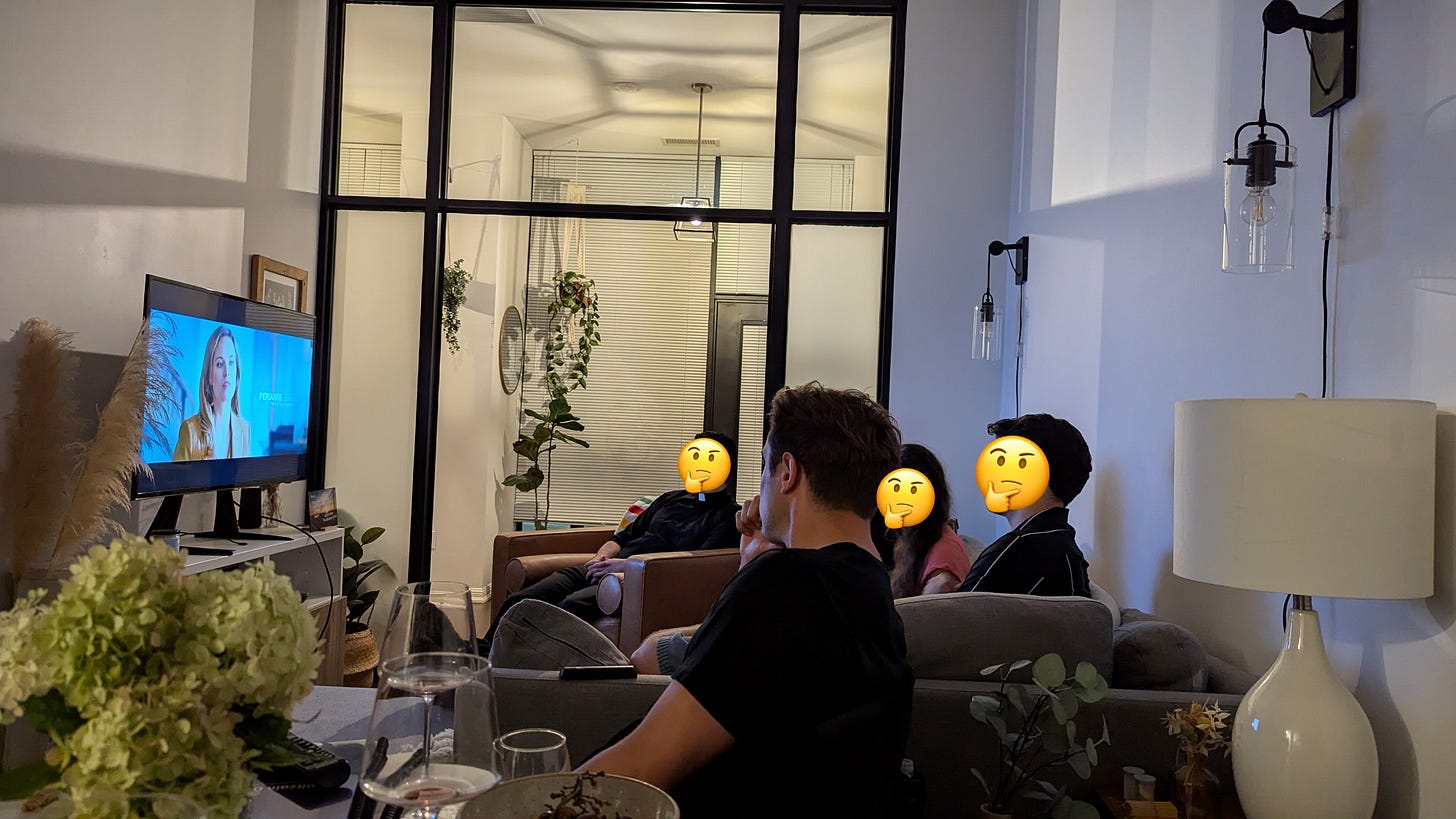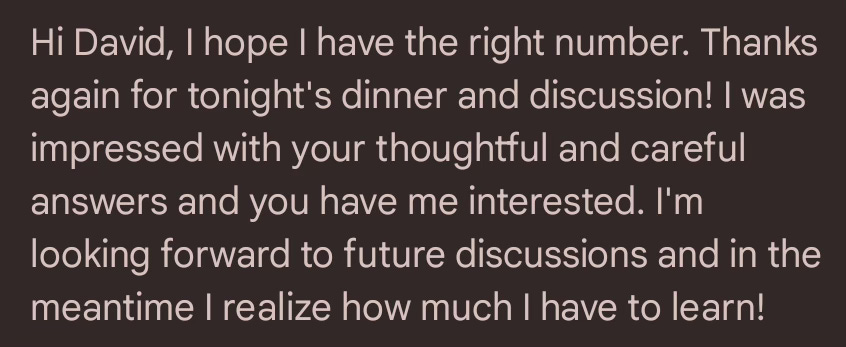God Bless Bitcoin: A Screening and Discussion (9 Key Questions)
An evening exploring the new documentary with a priest and 4 parishioners
Two weeks ago, I hosted a dinner with friends to discuss the new documentary “God Bless Bitcoin.” The group, composed of a priest and four parishioners, represented a range of perspectives in economics and finance. The goal was to gauge their reactions to the documentary as a workshop before my “Bitcoin & Catholic Social Teaching” course.
This article summarizes the evening and the nine key questions they asked.
The group
I gathered our group for dinner on a Wednesday evening:
Oratorian priest. Has taught economics to grade school students.
Male parishioner. Works in tech at a bank.
Male parishioner. Mortgage broker.
Female parishioner. Economics major.
Female parishioner. Has bought a bitcoin product through a bank.
Then me. All millennials or Gen Z. We met at a friend’s apartment in downtown Toronto, arriving 30 minutes late due to unexpected traffic. Dinner was enjoyable and relaxed. We caught up and shared casual conversation before focusing on the documentary. We had fun!
Documentary preview
At 9 PM, we began our discussion. I explained the night’s purpose: to discuss a documentary called “God Bless Bitcoin.” The film, created by “the Bitcoin community” per the opening credits, interviews Bitcoin experts and religious leaders from various faiths to present the Bitcoin sound money narrative.
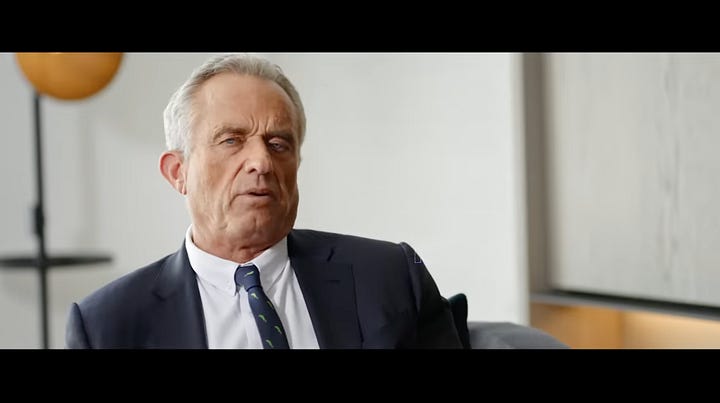
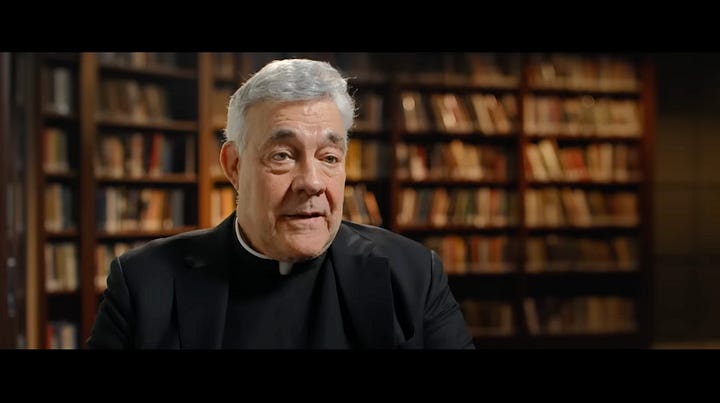
The goal
I informed my guests that my goal was to test the documentary and Q&A format’s effectiveness as a standalone workshop and as a lead-in to my Bitcoin & Catholic Social Teaching course. Unfortunately, due to time constraints, we only covered the course preview and were unable to delve into course details.
What we watched
We started watching the documentary, and I paused it after about 24 minutes due to the late hour. To my surprise, the group expressed disappointment and urged me to continue. We watched for another 8 minutes, pausing after the part about digital currencies and government control in China.
The 9 key questions from the Q&A
We then opened the floor for discussion and questions. Here what I thought were the 9 most interesting questions and observations:
Distributism and subsidiarity. The bank tech expert was the first to respond. He had thoughtful questions about how Bitcoin plays with G.K. Chesterton’s distributism and the Catholic principle of subsidiarity.
Money laundering. Father raised concerns about the potential for money laundering with Bitcoin, highlighting an argument for a state’s desire for transparency and control. This perspective hit different coming from a priest, and made me want to rethink my anti-censorship “Bitcoin is a tool, like a knife is a tool. They can be used for good or bad” response.
Deflation. Lots of intrigue and questions about deflation (declining prices). I put Jeff Booth’s The Price of Tomorrow on my shared screen and outlined his thesis.
Wealth inequality. The economics major asked about the stickiness of inequality with widespread adoption of Bitcoin. She was concerned that not everyone may earn a living wage, so some group would have to help provide for the people that don’t. The state having less monetary control seems like it makes that harder.
Debt sickness. The mortgage broker offered an informed analogy. He compared our current financial system to telling a sick person “to go to a pharmacy and just figure it out.” They don’t know what they need. Yet debt is pushed on them. This system can lead to severe consequences.
Lack of trust in institutions. The economics major observed that many in the documentary seemed overly distrustful of government and institutions. She emphasized the importance of trust and wished for more, both in the documentary and in a system. I said “I know a lot of people from the Bitcoin community are Protestants because of that, they don’t trust the Catholic Church.” That comment seemed to resonate.
Marxism and central banks. On the drive home with Father and the mortgage broker, we discussed Marxism as it was presented in the documentary. Father clarified how Marxism is primarily about labor rather than the state. I admitted I wasn’t familiar with the specifics of The Communist Manifesto but asked if it included a list of tenets. They confirmed it did. I suggested, “I believe one of those tenets is a central bank. I read that in a Bitcoin book.” They were surprised and checked their phones to verify. It seemed to be true. They questioned, “How could a central bank not be part of the state?” I replied, “Well, the current Federal Reserve banks are privately owned.” It kind of ended there. We didn’t resolve the comment, but they were both intrigued.
Banks disappear? The economics major asked: “Would banks disappear in the world with Central Bank Digital Currencies? What would happen to banks?” I said, “Yeah, most people think banks would go away and there would be just one big central bank. The private banks would be pretty much extinct.” That was shocking to some people.
What causes inflation? There was much debate about what actually causes inflation. Is it mostly “money printing” (in the documentary, Michael Saylor states that 98% of inflation today is monetary inflation), or is it from “natural” causes like immigration or lack of supply in the case of housing?
The end of the evening
Despite the late hour on a Wednesday, the group was enthusiastic and engaged. They expressed genuine interest in the film and the topics discussed. The feedback highlighted the complexities of faith, money, and economics. We didn’t reach universal agreement on the path forward, but the conversation sparked lively debate and underscored the need for open dialogue and exploration.
Are you interested in:
A screening of the God Bless Bitcoin documentary followed by a Q&A at your parish?
Early access to my Bitcoin & Catholic Social Teaching course that dives deeper into the ideas explored in the documentary?
If so, please reach out and I’ll get you set up.
You can reach me via the Substack app direct message feature, or by subscribing and replying to the email Substack sends you.


